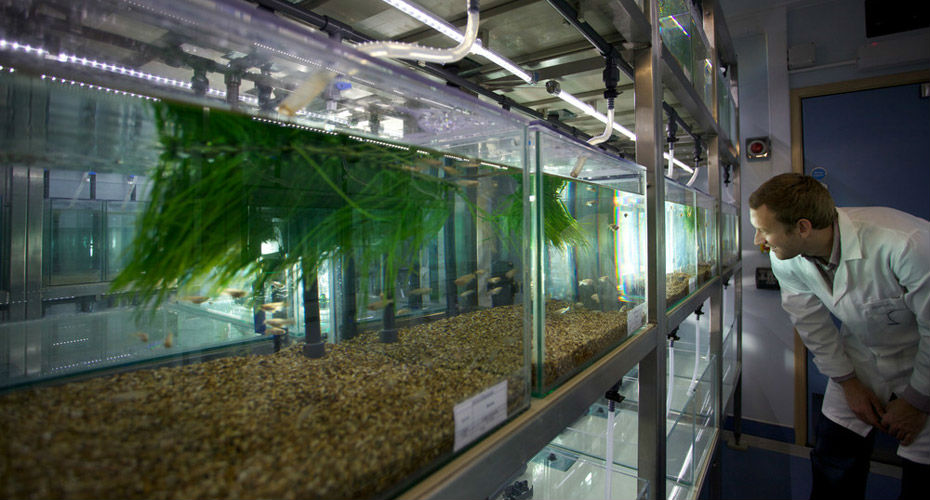The Aquatic Resources Centre (ARC)
Over £12 million has been invested in the Aquatic Resources Centre (ARC) to provide a world-class teaching and research facility.
With 14 aquaria (including 2,500 tank zebrafish unit) featuring fully flexible life support systems for freshwater or marine species, each relevant to a series of specific research questions.
The facility is supported by a Wolfson Imaging Unit with specialist microscopes, video and imaging equipment, together with several preparation and laboratory rooms that contain automated respirometry, dosing and gas control systems that allow for sophisticated developmental, physiological and behavioural research.
A computer-controlled water treatment plant with 12 recirculating and 7 flow-to-waste systems allows us to provide high-quality water of the desired salinity and temperature, from 10 to 28°C (+/- 1°C). Each room also has its own dedicated building management system for air temperature control and independent day-night light cycles.
Watch our video to find out more about the facilities and research activities within the Aquatic Resources Centre
Improving Welfare and Reproducibility in Zebrafish Research Workshop
The event was the culmination of 5 years of research into the role of water chemistry in zebrafish welfare and the reproducibility of zebrafish research studies.
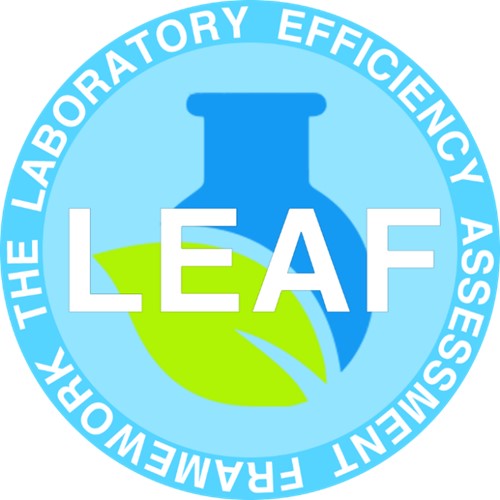
LEAF Silver Award 2024
The ARC team are pleased to be awarded the LEAF Silver Award in 2024 which recognises our ongoing commitment to sustainability.
Aquatic Facility Manager Greg Paull commented “This is a wonderful example of the high level of commitment across the ARC team to sustainability. The innovative and creative approach to operational improvements reflects this. The ARC team will continue these practises and collaborate with technicians and researchers to develop and implement new techniques as they move to the gold award. Kudos to all involved especially Amy Cotton who led the initiative.”
Research in the Aquatic Resources Centre
Research taking place within the ARC is incredibly wide-ranging and includes:
- improving our understanding of how chemicals entering the environment affect aquatic organisms;
- monitoring current and predicting future global impacts of ocean acidification and climate change;
- assessing the impacts of anthropogenic noise pollution on aquatic ecosystems;
working towards sustainable aquaculture; - understanding biological systems including neuroscience;
- studying aspects of human health, from modelling human disease processes through to drug development.
ARC staff
The ARC is staffed by a highly experienced team of management and technical staff covering the areas of aquatic systems and husbandry, including plant and life support systems, zebrafish and all other aquatic organisms' husbandry and welfare.
Meet the team
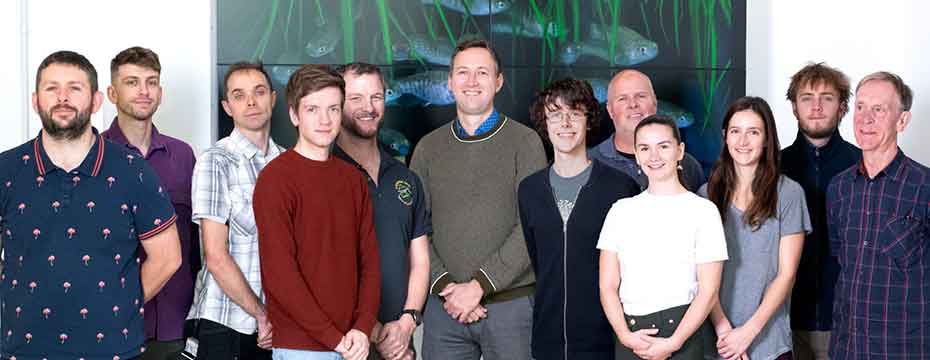
Left to right: Dave Maley, Jamie Haddon, Adam Johnstone, Alex Bell, Paul Tyson, Greg Paull, Richard Silcox, Derek Youd, Jennifer Finlay, Stephanie Smith, Ben Bingham, Steve Cooper.
Missing: Amy Cotton, Amanda Goodison, Charlotte Lake
Professor Charles Tyler
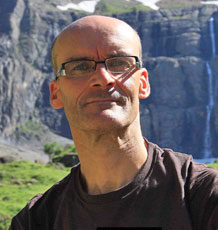
Professor of Environmental Biology / Academic Lead / Director of Aquatic Resources Centre
Charles is an internationally-leading environmental biologist and (eco) toxicologist with over 40 years of research and project management experience. His research spans investigations into the mechanisms of endocrine-disrupting chemicals and nanoparticle ecotoxicology to assessing population-level effects of environmental contaminants in wildlife, principally fish. Much of his research includes applying genetic and genomic techniques to understand the basis of physiological processes and the mechanisms through which they are disrupted by environmental contaminants. Charles has had many leading academic roles at Exeter including as Director of Research and Deputy Head of Biosciences and Academic Lead of the College of Life and Environmental Sciences.
He is co-director for the centre for Sustainable Aquaculture Futures (a partnership with Cefas), two NERC DTP training programmes (FRESH and ECORISC) and has been the UK-coordinator and Chief Science advisor for the Defra- Japan Min of Environment, UK-Japan partnership for studies on Endocrine Disrupting Chemicals for over 15 years. Charles has been awarded both various international prizes including the Fisheries Society of the British Isles Beverton Medal for Outstanding research in fish/ fisheries, the Founders Award. (Society of Environmental Toxicology and Chemistry) - the highest award and is given to an individual with an outstanding career in the environmental sciences, and the Marsh Award for Marine and Freshwater Conservation Founders Award (Zoological Society of London) in recognition of an outstanding contribution to environmental ecotoxicology and aquatic animal health.
Greg Paull
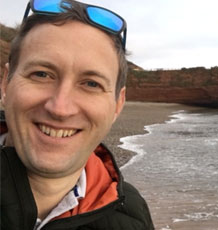
Aquatic Facilities Manager (Streatham Campus) & NACWO
Dr Gregory Paull is the founding manager and senior NACWO (Named Animal Care and Welfare Officer) of the Aquatic Resources Centre (ARC). Greg led the design and implementation of the facility in 2011 and oversees a team of experienced husbandry staff to help manage this Centre, which currently supports approximately 20 academic research groups.
In addition to his facility management and operational skills Greg has a successful research track record in reproductive biology of aquatic animals (including growth, stress, immune function and reproductive condition) as well as numerous ecotoxicology studies using zebrafish and roach contributing to over 40 publications.
Greg is particularly keen on promoting improved husbandry and welfare practices for laboratory-maintained fish, most notably in zebrafish, and is co-supervisor of PhD work in this area. In 2008, Greg was awarded a Winston Churchill Memorial Trust Travelling Fellowship to study zebrafish (Danio rerio; the most widely used fish species in scientific research) in the wild (Bangladesh).
Greg regularly contributes to guidelines/policies developing best practice for working with a range of species maintained at the University and has links with the international research aquaria community, fish husbandry-related industries, and animal welfare organisations and has been a regular contributor at some of the leading zebrafish/fish husbandry workshops for several years. He is also a Co-I on a number of grants relating to a range of studies of the environmental impacts on fish welfare and is involved in fieldwork in Borneo studying drivers and impacts of climate change and alternative food source supply.
Greg previously worked at CEFAS (fish histopath and molecular diagnostics disease labs) and studied at Queen Mary, London, Plymouth University and University of Exeter.
When not looking after aquatic creatures and researchers in the ARC Greg can be found engaged in sport (challenging new Uni students at football, badminton and hockey), outdoor / wildlife expeditions and socialising.
Paul Tyson
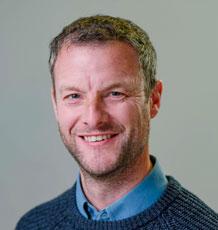
Systems Support Manager & Experimental Officer (NACWO) - Biological Research Facilities
Paul has a broad background in aquatic operations and project management ranging from public aquariums to fish health. Starting at his local sealife centre when just 14 years old he has worked as curator at several UK aquariums before joining the University's Aquatic Resources Centre in November 2018 and soon progressing to Deputy Facilities Manager.
In May 2023 Paul moved to a newly created role of Systems Support Manager and Experimental Officer for the Biological Research Facilities (including ARC). Paul now implements new ways of working and manages data systems across the BRFs and project manages incoming research projects in the ARC
Outside of work he is a keen photographer, junior football coach and loves climbing mountains, especially in the snow!
